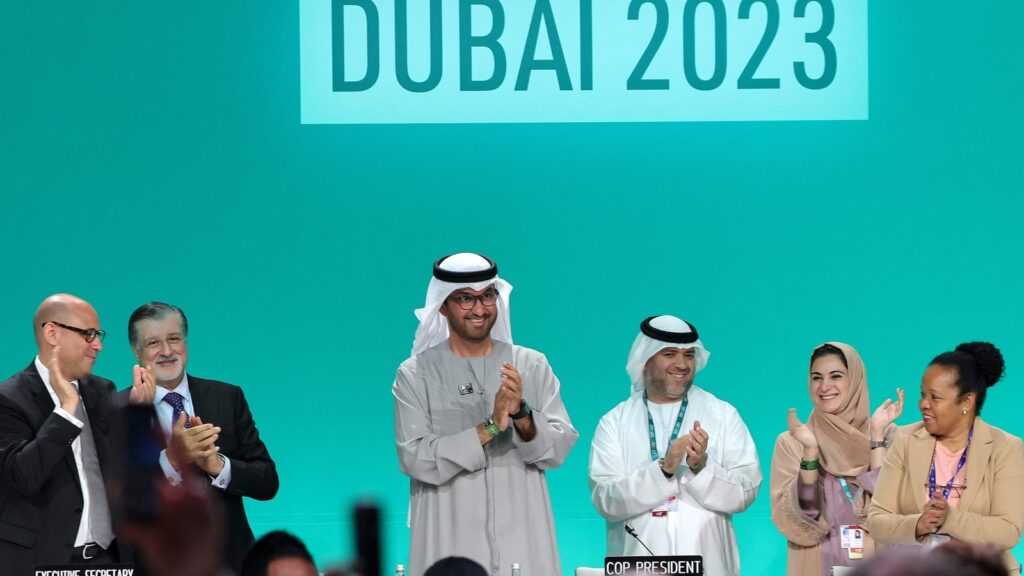Eight years to the day the world recognised the need to limit temperature rise to 1.5°C in Paris, nearly 200 countries on Wednesday agreed in Dubai to “transition away from fossil fuels” by 2050 “in keeping with the science”. The historic deal was reached at the COP28 summit, over 24 hours later than scheduled, as countries — angered over the proposal to reduce rather than abandon fossil fuels in a draft text — negotiated the first-ever inclusion of fuels in the outcome document. While the language appeared weak on a clear pathway to reaching the “net-zero by 2050” goal, it reiterated the Glasgow commitment to phase down “unabated coal power” and recognised the need for tripling renewable energy capacity by 2030, without diluting the principle of equity in achieving these goals.
The Dubai summit will now be remembered alongside Paris, Rio, and Kyoto, for multiple reasons. First, it is an indication to oil producers and major economies that the world has finally accepted the need, and banded together, to realise a future without oil, gas and coal. Second, the conference also succeeded in operationalising a loss and damage fund with a promise of at least $100 billion a year by 2030. Third, in a step further from the “business as usual” stance adopted so far, the outcome document recognised the urgency of the crisis as it expressed serious concern over 2023 becoming the warmest year and that the carbon budget consistent with the Paris goal is now small and depleting rapidly. Lastly, the consensus agreement noted that emissions cannot peak in all countries within the same time frame — a clear indication that developed countries must lead the way in reducing emissions. This is a major victory for developing nations that opposed efforts by the rich to omit references to common but differentiated responsibilities in the text.
The two-week-long negotiations held in an oil country, surrounded by oil countries — there were 2,456 oil lobbyists at the summit this year by one count– were fraught with disagreements. The last-minute consensus was unexpected for experts and activists alike. So, credit must also be given to the COP28 President Sultan Al-Jaber, who despite several controversies, managed to broker a deal that eluded activists for decades of climate talks. While some quarters have expressed disappointment, largely over weak language, success now depends on the implementation of the deal. As for finance, 2024 now becomes the year to plug that gap.
Continue reading with HT Premium Subscription
Daily E Paper I Premium Articles I Brunch E Magazine I Daily Infographics


